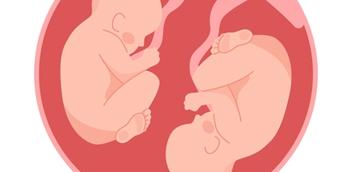
The impact of smoking cessation on pregnancy outcomes
Maternal-fetal medicine specialist Todd Rosen, MD, discusses how quitting smoking during pregnancy affects risks of preterm birth, stillbirth, and preeclampsia, urging simultaneous focus on nutrition to optimize outcomes.
In a recent interview, Todd Rosen, MD, maternal-fetal medicine specialist at Rutgers Health, discussed how the benefits of quitting smoking during pregnancy outweigh the risks.
Smoking during pregnancy has been associated with increased risks of preterm birth and stillbirth, but smoking has also shown increased protectiveness against preeclampsia, raising concerns over smoking cessation during pregnancy. Investigators conducted a population-based study to determine the factors influenced by quitting smoking among pregnant women.
Maternal smoking often leads to growth restriction among offspring, according to Rosen. Preterm birth, which has been cited is the primary cause of death and disability among infants, is more likely because of increased chances of preterm rupture of the membranes. This risk is more significant than those of sudden infant death syndrome or congenital anomalies.
Data from the study also found an increased risk of stillbirth among women who continued smoking during pregnancy vs those who never smoked or quit smoking during pregnancy. These findings were based on over 100 million births across the United States.
According to Rosen, obesity is one of the biggest problems US women with obesity face. Obese women have significantly increased risks of stillbirth, preeclampsia, diabetes, and other complications. The research also aimed to determine if the rise in obesity within the past few decades is linked to smoking cessation.
Rosen stated that the risk of gaining weight was increased among women who quit smoking during pregnancy vs those who never smoked or continued smoking, indicating a link between smoking cessation and weight gain. This increases the risk of hypertensive disorders of pregnancy among these patients.
Based on this data, doctors should tell their patients that if they plan to quit smoking, they should concurrently prioritize their nutrition and dietary counseling. This will help patients maximize the benefits of smoking cessation while reducing the risks of associated complications.
Newsletter
Get the latest clinical updates, case studies, and expert commentary in obstetric and gynecologic care. Sign up now to stay informed.









